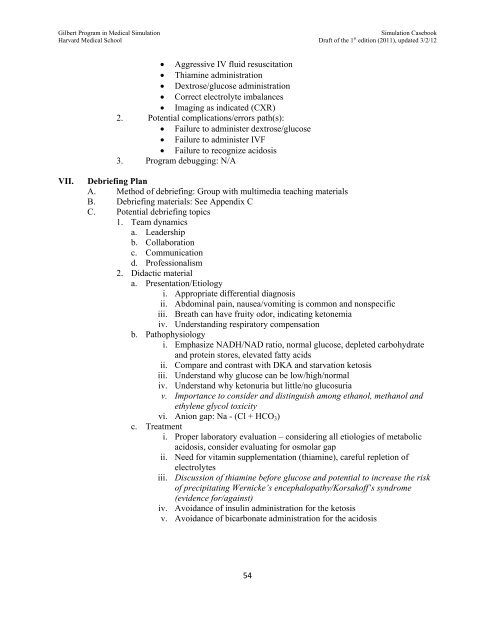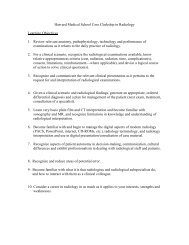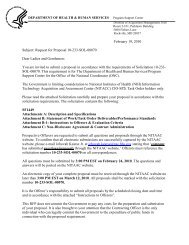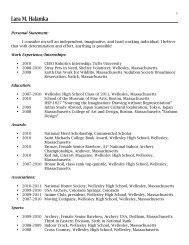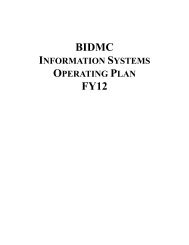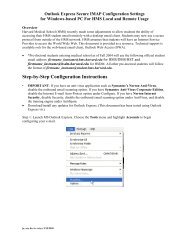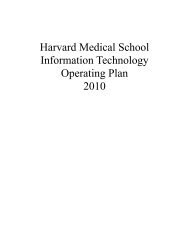SIMULATION CASEBOOK - MyCourses
SIMULATION CASEBOOK - MyCourses
SIMULATION CASEBOOK - MyCourses
You also want an ePaper? Increase the reach of your titles
YUMPU automatically turns print PDFs into web optimized ePapers that Google loves.
Gilbert Program in Medical Simulation<br />
Simulation Casebook<br />
Harvard Medical School Draft of the 1 st edition (2011), updated 3/2/12<br />
Aggressive IV fluid resuscitation<br />
Thiamine administration<br />
Dextrose/glucose administration<br />
Correct electrolyte imbalances<br />
Imaging as indicated (CXR)<br />
2. Potential complications/errors path(s):<br />
Failure to administer dextrose/glucose<br />
Failure to administer IVF<br />
Failure to recognize acidosis<br />
3. Program debugging: N/A<br />
VII.<br />
Debriefing Plan<br />
A. Method of debriefing: Group with multimedia teaching materials<br />
B. Debriefing materials: See Appendix C<br />
C. Potential debriefing topics<br />
1. Team dynamics<br />
a. Leadership<br />
b. Collaboration<br />
c. Communication<br />
d. Professionalism<br />
2. Didactic material<br />
a. Presentation/Etiology<br />
i. Appropriate differential diagnosis<br />
ii. Abdominal pain, nausea/vomiting is common and nonspecific<br />
iii. Breath can have fruity odor, indicating ketonemia<br />
iv. Understanding respiratory compensation<br />
b. Pathophysiology<br />
i. Emphasize NADH/NAD ratio, normal glucose, depleted carbohydrate<br />
and protein stores, elevated fatty acids<br />
ii. Compare and contrast with DKA and starvation ketosis<br />
iii. Understand why glucose can be low/high/normal<br />
iv. Understand why ketonuria but little/no glucosuria<br />
v. Importance to consider and distinguish among ethanol, methanol and<br />
ethylene glycol toxicity<br />
vi. Anion gap: Na - (Cl + HCO 3 )<br />
c. Treatment<br />
i. Proper laboratory evaluation – considering all etiologies of metabolic<br />
acidosis, consider evaluating for osmolar gap<br />
ii. Need for vitamin supplementation (thiamine), careful repletion of<br />
electrolytes<br />
iii. Discussion of thiamine before glucose and potential to increase the risk<br />
of precipitating Wernicke’s encephalopathy/Korsakoff’s syndrome<br />
(evidence for/against)<br />
iv. Avoidance of insulin administration for the ketosis<br />
v. Avoidance of bicarbonate administration for the acidosis<br />
54


